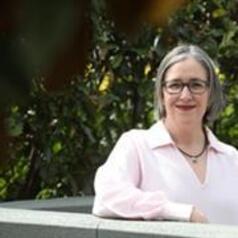
Jacqui Cameron
Associate Professor in Social Work, University of Wollongong
Dr Jacqui Cameron is a social worker with over twenty years’ experience in practice, research, evaluation and training in a variety of settings including alcohol and drug, mental health and domestic violence.
Jacqui completed her PhD at The University of Melbourne which resulted in an adapted Integrated Knowledge Translation model for the translation of domestic violence research.
In 2004, she completed a Master of Philosophy (MPhil) in Social Science Research at the University of Glasgow. She has a Diploma in Project Management, combining her research and project management skills to maximise the successful completion of projects.
She is Co-Editor for Advances in Dual Diagnosis (ADD) an international journal that promotes submissions on co-occurring mental health and substance use disorders from academics, practitioners, educationalists as well as from lived experience of dual diagnosis.
Highlights of her research career include being awarded the inaugural Allens Arthur Robinson Research to Practice Fellowship and the publication of over 60 peer-reviewed journal articles. Jacqui has expertise in systematic reviews having completed two NHMRC systematic reviews, a Cochrane review and published over 20 systematic reviews in the peer review literature.
She was the lead author of Take Note! A practical guide to writing case notes, which she wrote and delivered as a training package. She has extensive experience in training and workshop facilitation in practice settings.
Jacqui is a mixed method researcher with extensive experience in qualitative data methods, collection and analysis. She has been a registered NVivo trainer with QSR International.
Jacqui is an experienced social work practitioner researcher with a passion for transforming research into practice. Her ability lies in engaging with practitioners with enthusiasm and credibility. Using a social work lens, she engages services and service users to use evidence to inform practice and manage complex issues including alcohol and drugs, mental health and domestic violence.
Less ![]()
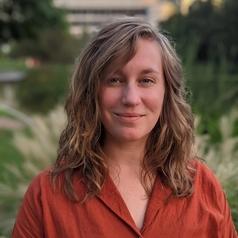
Jacqui Frost
Assistant Professor of Sociology, Purdue University
Jacqui Frost earned her Ph.D. at University of Minnesota in 2020 and joined Purdue sociology faculty in 2022. She is a mixed-methods scholar whose research integrates cultural sociology, sociology of religion, science and technology studies, and sociology of health. Most broadly, her work investigates the causes and consequences of religious disaffiliation in the United States. She is currently working on projects that examine conceptions of ritual and community in nonreligious congregations, the ways religious change shapes health and wellbeing, and conceptions of science as sacred in the transhumanist movement. She utilizes a range of methods to examine these topics, including surveys, ethnography, focus groups, and interviews. Her recent research has been published in American Sociological Review, Social Forces, Poetics, Social Currents, and Journal for the Scientific Study of Religion. You can learn more about Dr. Frost’s research and teaching interests at jacquifrost.com.
Less ![]()
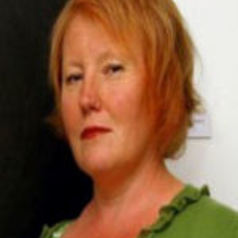
Jacqui Mulville
Professor in Bioarchaeology, Head of Archaeology and Conservation, Cardiff University
I am an archaeologist, with over 35 years of experience in professional, field and academic archaeology. I specialise in -
Archaeological science (particularly zooarchaeology and bioarchaeology).
The archaeology of islands and coasts.
Heritage management and archaeological practice.
Contemporary and historical archaeology.
I am Head of Section for Archaeology and Conservation, looking after @30 staff and @300 students s I am a member of the AHRC Peer Review Colledge, a Vice-President of the Prehistoric Society, the driving force behind Guerilla Archaeology (GA) and a founding member of the Festivals Research Group. I served as a full panel member for Unit of Assessment 15, Archaeology in REF2021.
I created Guerilla Archaeology to share my passion for the past with the public. I combine my specialist knowledge of archaeology with my love of the creative arts in festival outreach. From Shamans to Bog Bodies to Stonehengeburys, our innovative workshops were been voted as one of the 'top 20 things to do at Glastonbury 2017' and each year motivate thousands of people to engage with the past.
Less ![]()
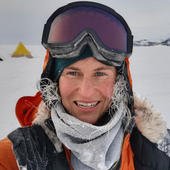
Jacqui Stuart
Postdoctoral Researcher in Marine Ecology, Te Herenga Waka — Victoria University of Wellington
Less ![]()
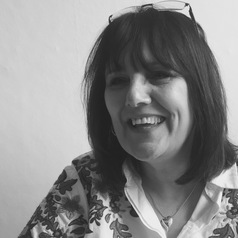
Jacqui Turner
Associate Professor in Modern History, University of Reading
I am broadly interested in late C19th and early C20th political cultures including gender, feminism and that heady mix of working class politics and religion.
My existing research 'The Soul of the Labour Movement' is a detailed examination of the Victorian morality and spirituality upon which the life of the labour movement was built and includes the wider contribution of the women's movement, children's associations and radical literary traditions. My new book 'The Labour Church: Religion and Politics in the Early Twentieth Century' will be published by I.B. Tauris in spring 2018.
My current research concerns early female pioneers in politics, focusing largely on female MPs between 1919 and 1931 primarily as 'sex-candidates'. I examine the contribution of early female MPs but also reassess the importance of the 1918 Representation of the People Act on British democracy, in relation to women and the emergence of female public politicians. I am particularly interested in Nancy Astor, who was the first female MP to sit in the House of Commons, whose papers are held here at the University of Reading.
I am privileged to work on the Vote 100 programme and from January 2019 I will project manage the Astor100 project, a series of events inspired by the election of Astor in 1919.
Less ![]()

Jade Davies
PhD Candidate, Translational Microbiome, Quadram Institute
I am a BBSRC DTP funded PhD student studying the sulphate-reducing bacteria within the human gut, with a specific interest in the pathobiont Bilophila wadsworthia. During my PhD, I aim to elucidate how Bilophila, a ubiquitous member of the gut microbiota, interacts with the host and the wider microbiota in a diet-dependent manner.
I obtained my BSc in Biomedical Sciences from Durham University. During my degree, I completed an industrial placement year at the biotechnology company Cambridge Research Biochemicals based in Teesside.
Less ![]()

Jade Elliott
Senior Lecturer of Psychology, Liverpool John Moores University
I do research on a number of themes, including the role of glycaemic control in cognitive functioning and memory. I also work on educational psychology, such as the use of humour in the classroom. Other research topics include wellbeing during the Covid pandemic as well as the psychology of sexual fantasies.
Less ![]()
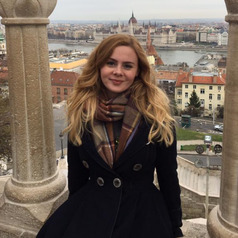
Jade Gilbourne
PhD Candidate in Sociology, University of York
Jade is a PhD candidate at the University of York, who is currently researching the impact of having sexual images shared without consent in adults. While there are several terms for this phenomena - ranging from 'revenge porn' to 'image-based sexual abuse', amongst others- Jade's research also includes people affected by things such as 'upskirting' and 'sextortion'. She is interested more broadly in digital identity, gendered online spaces, and sexual violence.
Jade's research at Masters level, also conducted at York, examined the gendered consumption of true crime content.
Less ![]()
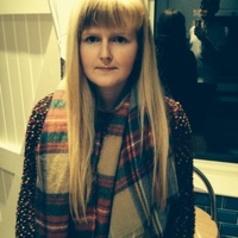
Jade Scott
Affiliate in History, University of Glasgow
Dr Jade Scott is an affiliate in History at the University of Glasgow. She completed her PhD from the University of Glasgow in 2017, with funding from the AHRC. She is an expert on women’s epistolary culture in Scotland and is currently working on a research project with future digital edition, ‘Scottish Women Letter-Writers 1480-1625’. She is a historical linguist and gender historian with a focus on the early modern period. Her research is interdisciplinary bringing together social and gender history with digital textual editing methods. She was Postdoctoral Research Associate on the AHRC Archives and Writing Lives project (2017-2019) and the British Academy recognised Book of the Dean of Lismore project (2020-2021). She has lectured at the University of Glasgow and the University of Stirling. Her edition of the Letters of Lady Anne Percy was published by Boydell & Brewer (2024) and her new popular history of Mary, Queen of Scots’ captive letters is published on 24 October 2024: Captive Queen: The Decrypted History of Mary, Queen of Scots (Michael O Mara Books, 2024).
Less ![]()

Jadey O'Regan
Dr. Jadey O’Regan is a Lecturer in Contemporary Music Practice at the Sydney Conservatorium of Music (University of Sydney). She is the co-author of "Hooks in Popular Music" (2022) with Dr. Tim Byron (University of Wollongong), which combines pop musicology and music psychology to understand pop music in an interdisciplinary way.
She teaches songwriting, production, performance, music analysis and music history, and her research interests include the musical analysis of pop music, genres, songwriting, and creativity. She is an experienced music communicator who has been featured on Channel 7’s ‘The Morning Show’, ABC’s ‘The Music Show’, triplej, ABC News and at music conference BIGSOUND. She is also a performing musician and songwriter. Jadey is the current secretary for the International Association for the Study of Popular Music - Australia/New Zealand (IASPM-ANZ).
Less ![]()

Jadine Scragg
Researcher, University of Oxford
I am a BRC Researcher with research interests in trialling interventions for the management and treatment of obesity-related diseases.
My PhD at Newcastle University focused on assessing the potential utilisation of lifestyle therapies as a means of treating and managing liver disease. As part of this, I explored the feasibility of a very low calorie diet (VLCD) to achieve significant weight loss in patients with advanced non-alcoholic fatty liver disease (NAFLD).
I am currently working on the DIAMOND programme, which is looking to see how effective a low-energy, low-carbohydrate behavioural programme is for people with Type 2 Diabetes (T2DM). I am also working on the RESULT study, which is looking to assess a digitally delivered low-carbohydrate diet for people with recently diagnosed T2DM.
Less ![]()
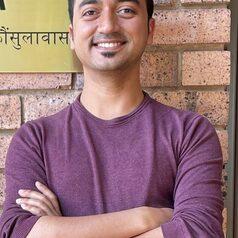
Jaganmoy Jodder
Post-doctoral researcher, University of the Witwatersrand
For his postdoctoral fellowship, Jaganmoy is working on the group-level behaviour of ancient microfossils. Jaganmoy completed his PhD on the palaeoarchaean rock record of the Singhbhum Craton, India. Prior to academia, Jaganmoy served the Oil and Natural Gas Corporation Ltd. (ONGC) for four years as a well-site geologist and micropaleontologist in India.
Less ![]()

Jagdeesh Prakasam
Jagdeesh Prakasam is Co -Chief Investment Officer for Rotella Capital Management and oversees the investment process for the firm’s publicly offered programs. He also focuses on the exploration of future research initiatives directly benefitting the firm’s core programs. Mr. Prakasam has been managing various proprietary portfolios as Portfolio Manager since early 2007. The holding period of the trades in these portfolios range from intraday to intermediate term across both futures and equities spaces. Mr. Prakasam joined Rotella Capital Management, Inc. (RCM) in 2003 as a Researcher primarily focused on supporting the research efforts in portfolio construction, risk management, and overlay strategies for RCM’s core trading strategies. He graduated from Dharmsinh Desai Institute of Technology, Gujarat, India with a Bachelor’s in Chemical Engineering in 2001 and received a Master of Science degree in Finance from the Stuart School of Business, Illinois Institute of Technology, Chicago in 2003. He is also a Chartered Alternative Investment Analyst designee since November 2007.
Less ![]()
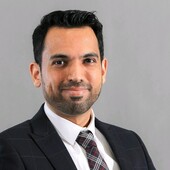
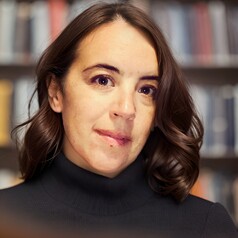
Jai Mackenzie
Senior Lecturer in Applied Writing and Humanities, Newman University
I am a Senior Lecturer in Applied Writing and Humanities at Birmingham Newman University. Prior to this appointment I was a British Academy Postdoctoral Fellow at the University of Nottingham.
My research interests include language in the media, digital communication, family diversity and gendered identities. I have published a range of research in these areas, including the 2019 monograph Language, Gender and Parenthood Online, and my 2023 book Connected Parenting.
I am convenor of the Language, Gender and Sexuality special interest group, which sits within the British Association of Applied Linguistics. I am also a member of the editorial board for the journal Discourse, Context and Media.
Less ![]()

Jaime Comber
Senior Research Consultant in Energy Futures, University of Technology Sydney
Less ![]()

Jaime Luque
Jaime Luque joined the Wisconsin School of Business as assistant professor in the Department of Real Estate and Urban Land Economics in September 2012. Jaime has previously taught at the Department of Economics at the Carlos III University of Madrid.
Jaime’s main academic research focuses on mortgages and securities lending. He also has some work on regional and urban economics. Jaime’s research has been published in journals such as Journal of Economic Theory, Journal of Public Economics, and Regional Science and Urban Economics. He has also written opinion pieces for the Financial Times, Expansion and La Repubblica, as well as for the Vox.eu and Eurointelligence economics op-ed sites.
Professor Luque's teaching specializations include real estate finance and urban economics. He has recently published the textbook "Urban Land Economics" with Springer International Publisher, an initiative that involved the participation of numerous students from the Real Estate program at the Wisconsin School of Business.
Less ![]()
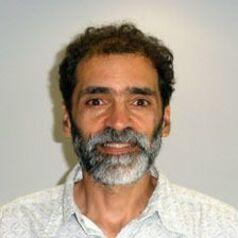
Jaime Toro
Professor of Geology, West Virginia University
Recently I have been investigating the Paleozoic and Mesozoic tectonic evolution of Northern Alaska and the Arctic region in general. I enjoy exploring the geology of the remote northern mountain belts. In the last few summers I have been doing field work along the rivers that drain Alaska’s Brooks Range. With my students and collaborators, we map and sample for geochronology, thermochronology and paleothermometry in order to unravel the history of the assembly of Northern Alaska. I have also lead projects on the structure and evolution of the Appalachian fold-and-thrust-belt and the Appalachian basin. I am starting a new project in collaboration with Stockholm University and the USGS to study the evolution of the Koyukuk basin, located south of the Brooks Range.
Less ![]()
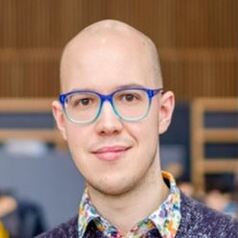
Jaime Garcia Iglesias
Chancellor's Fellow, Deanery of Molecular, Genetic and Population Health Sciences Usher Institute Centre for Biomedicine, Self and Society, The University of Edinburgh
I am an interdisciplinary researcher interested in the interface between sexuality, health, memory and online/offline practices. I am currently working on a variety of projects focused on how gay men negotiate HIV risk and COVID-19 risk, people experience memories of the HIV/AIDS pandemic, and use the internet for wellbeing during COVID-19.
I have authored reports and papers on the impact of COVID-19 on LGBT+ people's lives and health and provided evidence to the UK Parliament on PrEP delivery nationwide.
Less ![]()


Jaimie Monk
Research fellow , Motu Economic and Public Policy Research
Jaimie joined Motu Research as a Fellow in 2022 after finishing her PhD in Public Policy at Te Herenga Waka – Victoria University of Wellington. Her areas of research interest include child poverty, family wellbeing, housing, children’s technology use and behavioural economics for public policy. Her work at Motu involves using data from the Growing Up in New Zealand study to understand how public housing affects children’s wellbeing as part of the Public Housing and Urban Regeneration project with the New Zealand Centre for Sustainable Cities.
In 2022 Jaimie was awarded the Jan Whitwell Prize for doctoral research by the New Zealand Association of Economists for work from her PhD thesis which addressed the effect of income on children’s behavioural development.
Less ![]()
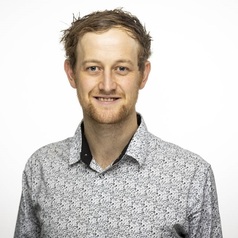
Jaimon Kelly
Senior Research Fellow in Telehealth delivered health services, The University of Queensland
I am a consultant Accredited Practising Dietitian (APD) and Senior Research Fellow at The University of Queensland Centre for Online Health. Dr Kelly's research program focuses on understanding the feasibility, experience, effectiveness, and cost-effectiveness of technology-supported interventions for improving patient-centred care in chronic disease and simplifying nutrition communication for clinicians and people living with chronic conditions. Through research, advocacy and practice, Jaimon is now using his experience in technology-supported nutrition care to advance nutrition in chronic disease management and sustain the use of telehealth-delivered nutrition care in Australia.
Less ![]()
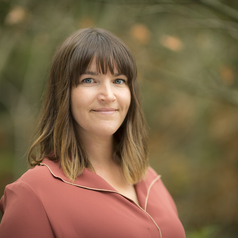
Jaimy Fischer
Post Doctoral Researcher, Human Geography, University of Toronto
I'm a Michif/Métis and settler transportation researcher. My PhD focused on geospatial data and analysis for advancing transportation equity. I'm currently a Provost's Postdoctoral Fellow at the University of Toronto working in the area of Indigenous transportation equity and mobility justice.
Less ![]()

Jairo Gutierrez
Professor, Department of Computer and Information Sciences, Auckland University of Technology
Less ![]()
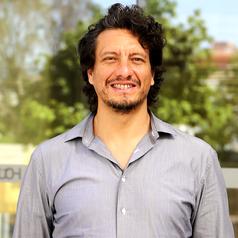
Jairo A. Navarrete-Ulloa
Adjunct assistant professor, Institute of Education Sciences, Universidad de O’Higgins (Chile)
His research seeks to understand reasoning based on analogies and the role of relational processing in learning. Attracted by the field of exact sciences, he studied Computer Engineering and Mathematical Engineering where he obtained recognition as one of the best students of his career. In his doctoral thesis he built a mathematical model that describes a cognitive mechanism called "analogy." This mechanism is used by the human mind to make comparisons between two entities in a very flexible way. His current research is aimed at the application of this mechanism to the development of technology in the educational area.
Less ![]()

Jake Brooker
Research Associate in the Department of Psychology, Durham University
I am a postdoctoral research associate studying comparative psychology in great apes. My research interests include empathy and other emotional processes, decision-making, rationality, conflict management, and individual and group-level variation in the aforementioned concepts.
I have worked with captive, wild, and sanctuary-living populations of primates. My current research is focused on great apes, but I have interests in and some experience studying human populations. I completed my Bachelor's and Master's degrees at the University of Kent and my PhD at Durham University, where I now work.
Less ![]()

Jake Earl
Adjunct Lecturer of Philosophy, Georgetown University
Jake Earl is Adjunct Lecturer of Philosophy at Georgetown University and a professional bioethics consultant. He completed a postdoctoral fellowship in bioethics at the National Institutes of Health Clinical Center and worked as a clinical ethicist at a comprehensive medical center. He holds a PhD in philosophy from Georgetown University, and his research interests include topics such as procreation and parenthood, biomedical research and innovation, population and climate change, and infectious disease.
Less ![]()
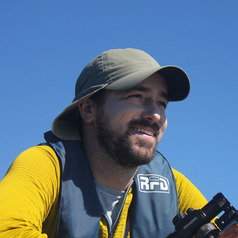
Jake Linsky
Marine mammologist that studies the health and foraging ecology of baleen whales.
Less ![]()
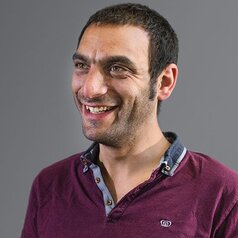
Jake Phillips
Reader in Criminology, Sheffield Hallam University
I have been at Sheffield Hallam University since 2012. Prior to this I completed my PhD at the University of Cambridge. I have carried out research across prison, probation, parole, youth justice and criminal justice inspection. My research focuses on the intersection between policy and practice in criminal justice and I have particular expertise in emotional labour, staff well-being, probation policy, privatisation and technology.
Prior to doing my PhD I worked in various roles in the community with offenders. I also have an MSc in Criminology and Criminal Justice from Edinburgh University.
Less ![]()
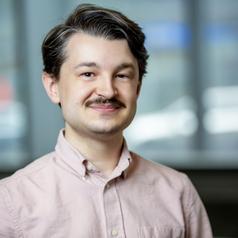
Jake Pitre
PhD Candidate in Film & Moving Image Studies, Concordia University
Jake Pitre is a PhD student in Film and Moving Image Studies at Concordia University. He received his master’s degree in Film Studies from Carleton University in 2018. His research areas include platform/digital studies, media industry studies, and queer theory. He has been published in New Media & Society, Transformative Works and Cultures, and FLOW. He is also coordinator at the Platform Lab, a Concordia-based research group.
Less ![]()
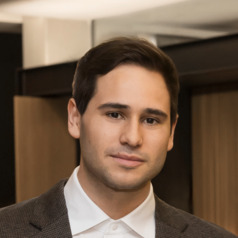
Jake Renzella
Lecturer, Director of Studies (Computer Science), UNSW Sydney
Dr Jake Renzella is the Director of Studies (Computer Science), and Co-Head Computing and Education Research Group at the University of New South Wales' School of Computer Science and Engineering. Jake’s research focus is on designing and evaluating pedagogically-sound Artificial Intelligence-based tools for use in Education contexts. Jake is the Computer Science Academic Lead of Sunswift Racing, and Co-Founded educational platforms used at several Australian universities.
Less ![]()
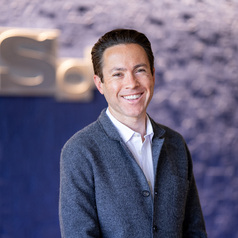
Jake Rosenfeld
Professor of Sociology, Washington University in St Louis
Jake Rosenfeld's research and teaching focus on the political and economic determinants of inequality in the United States and other advanced democracies. He is primarily interested in the determinants of wages and salaries, and how these vary across time and place. He received his Ph.D. from Princeton University.
Rosenfeld's 2014 book What Unions No Longer Do (Harvard University Press) shows in detail the consequences of labor’s decline: curtailed advocacy for better working conditions, weakened support for immigrants’ economic assimilation, and ineffectiveness in addressing wage stagnation among African-Americans. The book has received wide attention in the national press and in such outlets as The New Yorker and Harvard Business Review.
His 2021 book, You're Paid What You’re Worth and Other Myths of the Modern Economy (Harvard University Press), seeks to answer the basic question: who gets what and why? He argues that four dynamics are paramount: power, inertia, mimicry, and demands for equity. Power struggles legitimize pay for particular jobs, and organizational inertia makes that pay seem natural. Mimicry encourages employers to do what peers are doing. And workers are on the lookout for practices that seem unfair. Rosenfeld shows us how these dynamics play out in real-world settings, drawing on cutting-edge social science, original survey data, and a journalistic eye for compelling stories and revealing details. The book has been featured in the Wall Street Journal, Washington Post, and Harvard Business Review.
Less ![]()

Jakelin Troy
Director of Aboriginal & Torres Strait Islander Research Office, University of Sydney
I am a Ngarigu woman of the Snowy Mountains in Southern New South Wales, Australia. I have studied widely, in Australia, Japan and Mexico particularly in the fields of linguistics, anthropology, visual arts, education, archaeology and language learning. I have a BAHons(1st) in anthropology from the University of Sydney. My PhD is in linguistics from the Research School of Pacific and Asian Studies, Australian National University. I have a Graduate Diploma in Secondary Education from the University of Canberra. I am now research Professor at the University of Sydney where I work with Professor Shane Houston, the Deputy Vice Chancellor, Indigenous Strategy and Services. In my role I support Indigenous researchers and research projects across the University, with other Australuan universities and internationally to get the best possible research outcomes for Indigenous peoples worldwide.
Less ![]()
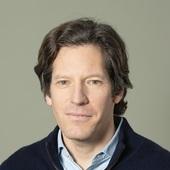

Jakub Hlávka
Research Assistant Professor of Health Policy and Management; Schaeffer Center Fellow, University of Southern California
Jakub Hlávka, PhD, is a fellow at the USC Schaeffer Center. He is also a research assistant professor in the Health Policy and Management Department of the Price School of Public Policy at USC. His NIH-funded research focuses on the modeling of dementia treatments and associated economic challenges, with a specific focus on Alzheimer’s disease and emerging disease-modifying therapies. His modeling of COVID-19 pandemic interventions has been supported by the CDC and DHS, and his broader research interests include innovative payment models for pharmaceuticals, health system reform and the study of inequality, with current funding from the Greenwall and PhRMA foundations. Dr. Hlávka teaches in master’s programs at the USC Price School of Public Policy and the Keck School of Medicine.
Outside of USC, Prof. Hlávka is a research consultant for the National Academies of Sciences, Engineering, and Medicine (Committee on Improving Representation of Women and Underrepresented Minorities in Clinical Trials and Research) and a member of the International Pharmacoeconomics Collaboration on Alzheimer’s Disease (IPECAD). He has additional professional experience from Genentech where he worked on R&D portfolio planning and as a consultant to the Tufts Medical Center's Center for the Evaluation of Value and Risk in Health. In volunteer capacity, he works closely with a hospital and schools serving vulnerable populations in the Dandora area of Nairobi, Kenya.
Aside from health policy and economics, he has co-authored studies in national security, aerospace and emerging technologies and has served in research and consulting roles at the Fraunhofer Society (Germany), RAND Europe in Cambridge (England), and at the Office of the Government and Ministry of Finance in Prague (Czech Republic).
Dr. Hlávka holds a PhD and MPhil from the Pardee RAND Graduate School, a master’s degree from Georgetown University, Edmund A. Walsh School of Foreign Service, and an undergraduate degree from the University of Economics in Prague.
Less ![]()
- Market Data



















